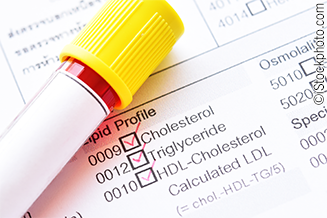There is substantial evidence that a diet rich in fish results in lower levels of atherosclerosis. This has led to the hypothesis that fish oils, which are known to reduce triglyceride levels – an independent risk for cardiovascular events – might also reduce the level of cardiovascular disease possibly by lowering triglycerides. The open-label Japan EPA Lipid Intervention Study (JELIS) used a highly purified, fish oil extract containing only eicospentaenoic acid (EPA) and showed a reduction in cardiovascular events.3 This led to the large, randomised, double-blind, placebo-controlled, multinational trial called the Reduction of Cardiovascular Events with Icosapent Ethyl – Intervention Trial (REDUCE-IT) in both primary and secondary prevention patients (n=8,179). The results of the trial showed that over a median of 4.9 years in patients already treated with statins that there was a 25% reduction in five-point major adverse cardiovascular events (MACE, i.e., cardiovascular death, heart attack, stroke, coronary revascularisation, or unstable angina) with an even greater 28% reduction in five-point MACE in the secondary prevention cohort.4

In July 2020, the National Institute for Health and Care Excellence (NICE) published technology appraisal TA805, in which they recommend icosapent ethyl as an option in patients with established cardiovascular disease, fasting triglycerides greater than 1.7 mmol/L (150 mg/dL) and low-density lipoprotein cholesterol (LDL-C) controlled to between 1 and 2.6 mmol/L (39 and 100 mg/dL).5 This is now included in the NHS England Summary of national guidance for lipid management for primary and secondary prevention of cardiovascular disease.6
In this supplement, Professor Chris Packard details the risk of raised triglycerides (https://doi.org/10.5837/bjc.2023.s06), then Professor Azfar Zaman introduces the concept of fish oils (https://doi.org/10.5837/bjc.2023.s07), Dr Michael Miller reviews REDUCE-IT and its sub-analyses (https://doi.org/10.5837/bjc.2023.s08), before Dr Lucrezia Volpe and Professor Charalambos Antoniades suggest future directions for icosapent ethyl in clinical practice (https://doi.org/10.5837/bjc.2023.s09).
Conflicts of interest
DC has received reimbursement from Amarin Corp for advisory boards, as well as speaker fees.
Derek Connolly
Guest editor, Consultant Cardiologist
Birmingham City Hospital, Dudley Rd Birmingham, West Midlands, B18 7QH
(D.L.connolly@bham.ac.uk)
References
1. World Health Organisation (WHO). Cardiovascular diseases (CVDs).News room fact sheet 11th June 2021. Available at: https://www.who.int/news-room/fact-sheets/detail/cardiovascular-diseases-(cvds) [accessed 31 March 2023].
2. Chapman MJ, Zamorano JL, Parhofer KG. Reducing residual cardiovascular risk in Europe: therapeutic implications of European Medicines Agency approval of icosapent ethyl/eicosapentaenoic acid. Pharmacol Ther 2022;237:108172. https://doi.org/10.1016/j.pharmthera.2022.108172
3. Yokoyama M, Origasa H, Matsuzaki M, et al.; Japan EPA lipid intervention study (JELIS) Investigators. Effects of eicosapentaenoic acid on major coronary events in hypercholesterolaemic patients (JELIS): a randomised open-label, blinded endpoint analysis. Lancet 2007;369:1090–8. https://doi.org/10.1016/S0140-6736(07)60527-3
4. Bhatt DL, Steg PG, Miller M, et al.; REDUCE-IT Investigators. Cardiovascular risk reduction with icosapent ethyl for hypertriglyceridemia. N Engl J Med 2019;380:11–22. https://doi.org/10.1056/NEJMoa1812792
5. National Institute of Health and Care Excellence (NICE). Icosapent ethyl with statin therapy for reducing the risk of cardiovascular events in people with raised triglycerides. Technical Appraisal Guidance [TA805], published 13th July 2022. Available at: https://www.nice.org.uk/guidance/TA805/chapter/1-Recommendations [accessed 31 March 2023].
6. NHS England Accelerated Access Collaborative. Summary of national guidance for lipid management for primary and secondary prevention of cardiovascular disease, Published 9th April 2020, updated 8th December 2022. Available at: https://www.england.nhs.uk/aac/wp-content/uploads/sites/50/2020/04/National-Guidance-for-Lipid-Management-Prevention-Dec-2022.pdf [accessed 31 March 2023].

